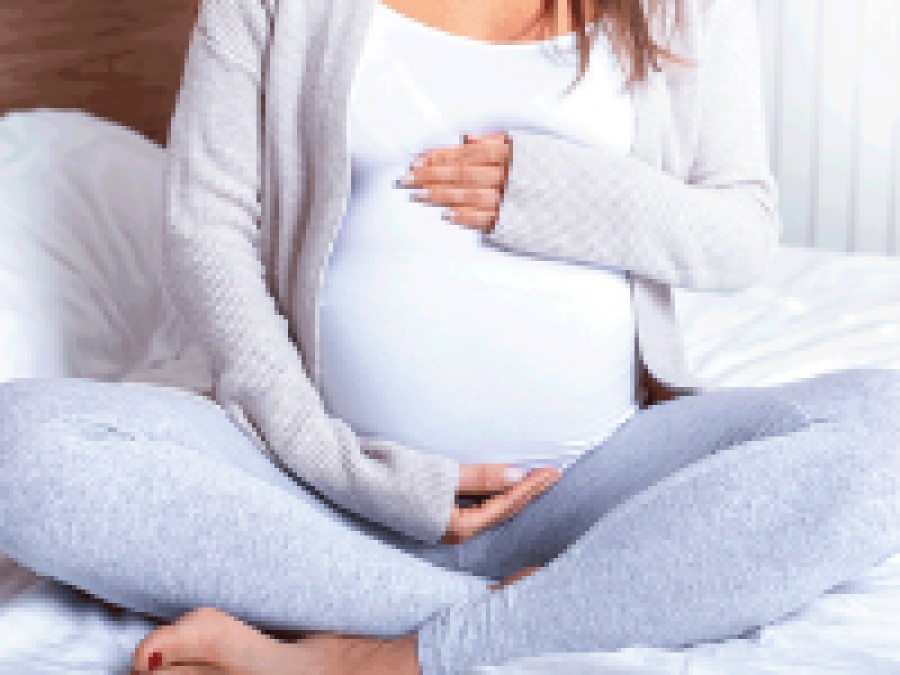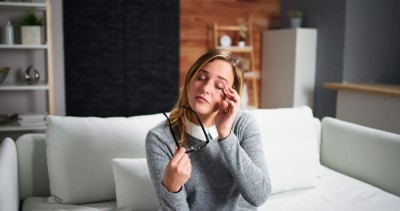Free shipping for orders over 39.00€
All you need to know about hemorrhoids during pregnancy

Pregnancy is the most beautiful period in a woman's life, full of emotions and expected happiness. However, it is often accompanied by annoying side effects – hemorrhoids are one of them.
Hemorrhoids are a set of veins and arteries that form "vascular cushions". They are located in the lower part of the intestine and act as a protector for the anus and the normal functioning of the bowel. Depending on where they are, we have internal (usually bleeding and not accompanied by pain) and external hemorrhoids (which cause small blood loss, pain, burning and itching). When hemorrhoids become swollen or irritated, then we have a disorder called hemorrhoidal disease.
Hemorrhoids are a common problem, that affects people of all ages: 50% of people over the age of 50 will develop hemorrhoids. Men suffer more often than women, in whom they occur quite often during pregnancy and after labor.
In the exacerbation of the disease, the symptoms are annoying, unpleasant, even unbearable: Pain and discomfort, painless bleeding, swelling and discomfort in the anal area, sitting discomfort, itching, stinging, intolerance, mucus secretion, irritation in the area. A general surgeon with clinical and/or imaging examination can make the diagnosis and direct the patient to the appropriate treatment.
Although it is not clear what stimulate the hemorrhoids - as the causes often vary from person to person - some possible explanation includes the constipation, obesity, low fiber diet, weights lifting, lack of exercise, pregnancy and the labor.
Pregnancy and hemorrhoids
Hemorrhoids are very common during the 2nd and 3rd trimester of pregnancy and afflict the pregnant woman, as they are very painful. During pregnancy, a woman's uterus grows, and the inside of the abdomen is pressed, hormonal changes are observed, constipation and circulatory disorders are happening. All these rearrangements that accompany pregnancy, also change the blood circulation in the area, activating the hemorrhoids. Symptoms may include itching, bloody stools, or involuntary gas loss.
It is comforting - due to the already sensitive soul of the pregnant woman - that hemorrhoids that did not precede pregnancy and labor quickly disappear, with proper treatment.
How to prevent the appearance of hemorrhoids?
A few, simple tips, to follow during pregnancy, will help prevent the appearance of hemorrhoids.
Pay attention to your diet
Pregnancy can triggers yearn for junk food, but it is better to daily consume fruits, vegetables, fiber and whole grains, which help fight constipation.
Keep yourself hydrated
Your body will function properly only if you keep it hydrated. Do not forget to drink at least 2 liters of water per day.
Take care of your body
You do not need to focus to the gym. However, it would be helpful to either avoid standing still or sitting endlessly at a chair. Furthermore, if you work in an office, take frequent breaks and move around.
Pay attention to the hygiene of the sensitive area
Avoid using toilet paper and choose to wash with lukewarm water and a mild soap, after defecation. Similarly, if you are away from home, use baby wipes.
How do we deal with hemorrhoids?
In general, when the problem is not severe, our doctor prescribes the appropriate creams, ointments and patches with cortisone and lidocaine, to relieve pain or itching. In severe cases, when the medication does not offer a definitive solution, surgery is required. However, during pregnancy, surgery is not recommended, so, in addition to preventive measures, you can follow the following tips:
Consult your doctor and get special creams and products that are allowed during pregnancy to relieve symptoms.
Keep the area clean, bathe daily in lukewarm water. Avoid strong antiseptics and scented cleansers for the sensitive area.
Avoid as much pressure as you can when defecating.
If the area is irritated, apply cold water compresses.
Avoid spicy foods, legumes, fatty foods and nutrition high in sugar. Eat dried fruits (apricots and plums) instead, and probiotics to help with the intestinal flora.
Consult your doctor and start working out. Exercise helps to mobilize the intestine, which is burdened due to pregnancy hormones. Exercise ensures good blood circulation and reduces the chance of developing hemorrhoids.
Be patient. The greatest joy of life, your baby, is or will soon be in your arms and hemorrhoids will last for only three months after labor. The suggested treatment by your doctor will erase the memory of hemorrhoids from your mind.






